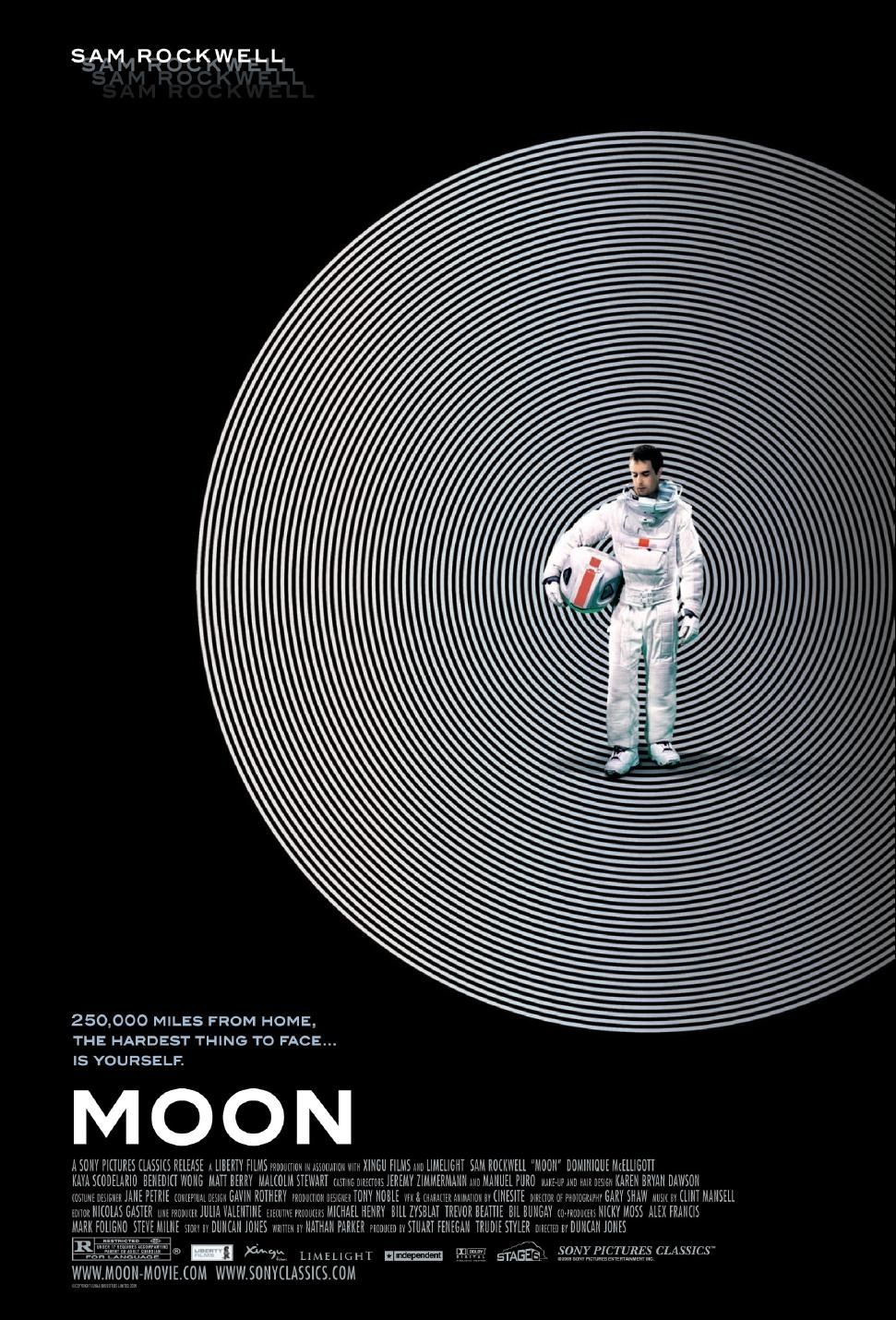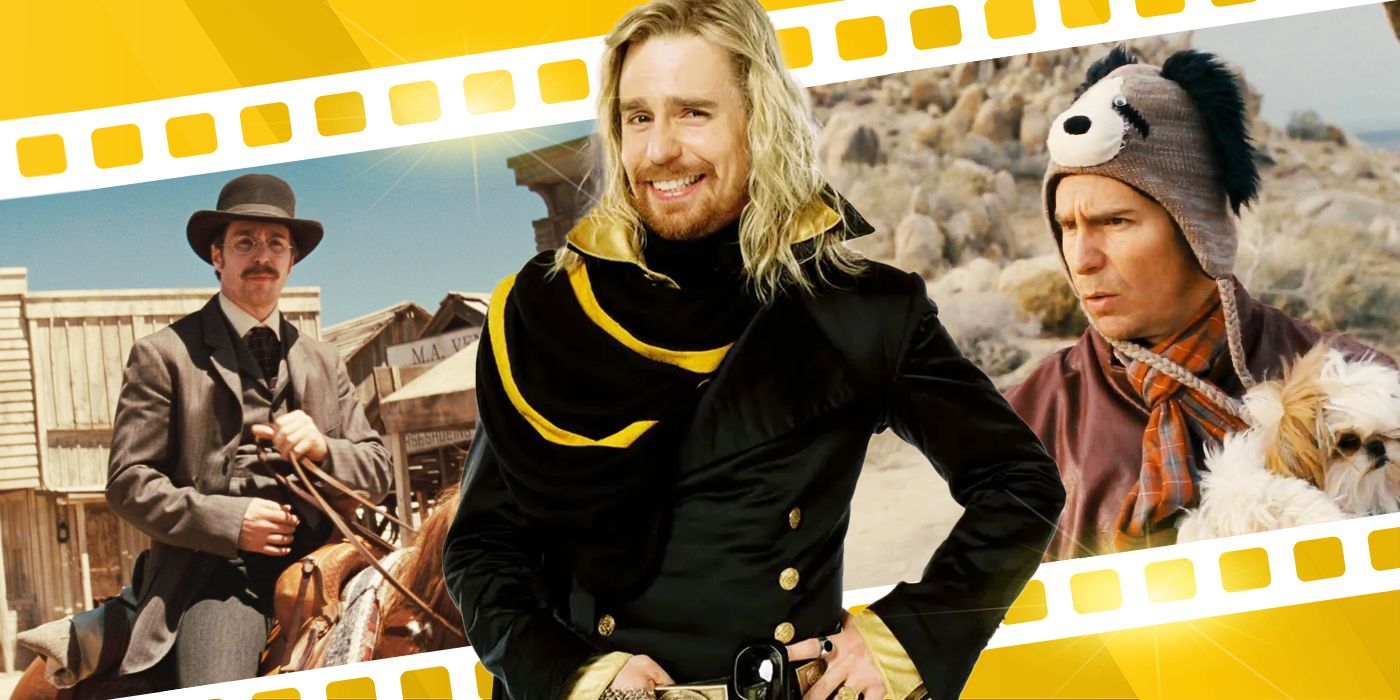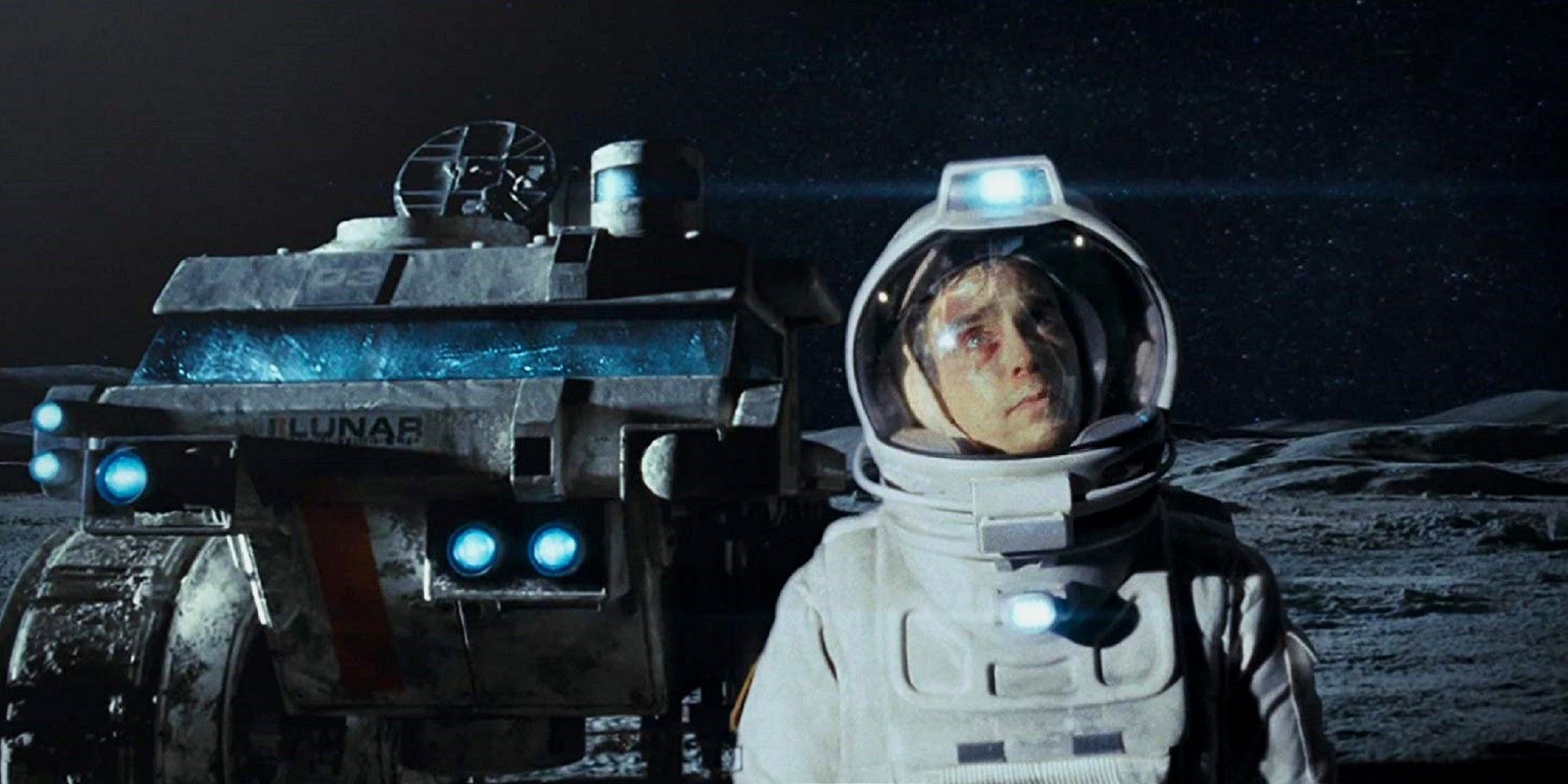The Big Picture
- Director Duncan Jones made Moon so he could work with Sam Rockwell and display the full extent of Rockwell's talents.
- Moon, a 2009 psychological sci-fi that pays homage to 2001: A Space Odyssey and Alien, was Rockwell's first heroic lead role and a performance that deserved an Academy Award nomination.
- Rockwell's dual performance, where he portrays two different clones of the same man, remains one of the actor's most impressive achievements for his versatility and startling fragility.
Duncan Jones made Moon, his 2009 directorial debut, for one actor and one actor only: Sam Rockwell. Granted, Paddy Considine nearly took the role instead due to the production schedule's fast pace. But Jones created Moon solely because of his desire to work with Rockwell. The film's concept sprung from a conversation between director and star, and its protagonist bears the name Sam Bell (a nice bit of self-referentiality). Conceivably, someone else — the spectacular Considine, for instance — could've delivered a superb performance off a script as magnificent as Moon's, which counts as catnip for character actors. Half an hour with Rockwell makes it impossible to imagine another in his stead, and the whole produces a turn rather impossible to forget. A character actor at heart, Rockwell wouldn't be nominated for or win an Academy Award until 2017 (for Three Billboards Outside Ebbing, Missouri, another actor's catnip situation). His role in Moon is a quintessential example of "this deserved an Oscar," with Moon's oversight possibly due to the Academy's genre recognition problem. Regardless, we're several years out from Three Billboards, living in a world where Rockwell's making comedy mincemeat out of Argylle's unconventional action scenes. Now more than ever, one of his finest performances deserves widespread recognition.

Moon
Astronaut Sam Bell has a quintessentially personal encounter toward the end of his three-year stint on the Moon, where he, working alongside his computer, GERTY, sends back to Earth parcels of a resource that has helped diminish our planet's power problems.
- Release Date
- July 10, 2009
- Director
- Duncan Jones
- Cast
- Sam Rockwell , Kevin Spacey , Dominique McElligott , Rosie Shaw , Adrienne Shaw , Kaya Scodelario , Matt Berry
- Runtime
- 97 minutes
- Writers
- Duncan Jones , Nathan Parker
What Is Duncan Jones’ ‘Moon’ About?
For his debut, Duncan Jones intentionally replicated the influential sci-fi films of his childhood. Although Jones pursued Sam Rockwell for a different movie (which became Netflix's Mute), the pair shared a love for the grittier, grimier, and more humanist sci-fi of the 1970s and '80s. Determined to work with Rockwell, Jones and co-writer Nathan Parker "immediately" pivoted from Mute to Moon. "What can we give him as an acting challenge that will entice him to come and do this low-budget British science fiction film with a first time director?" Jones explained to Polygon.
The answer is a fable that channels 2001: A Space Odyssey, Alien, and Silent Running in production design and narrative focus before arriving at a perfect synthesis. If 2001 is emotionally distant but framed by breathtaking imagery, and Silent Running merges slice-of-life mundanity with moody existentialism, then Moon faithfully replicates the latter and brings bloody life to the former. It's the definition of character-based sci-fi, examining human nature's broad strokes through circumstances compounded by genre trappings. In Moon, a futuristic Earth runs on fusion energy. Machines harvest the sun's power through a mining base on the far side of the moon, overseen by the Lunar Industries company. Sam Bell is their sole worker. He's finally nearing the end of his three-year contract, one that's taken an exhaustive toll. When an accident brings Sam into contact with his clone, a wider capitalist conspiracy unravels — as do both Sam Bells, not incidentally.

10 Underrated Sam Rockwell Movies, Ranked
Rockwell has given memorable performances in many cult hits, independent dramas, and films that have been otherwise forgotten.For Rockwell, grounding a cast of one was intimidating and appealing. In 2009, he told NPR, "The acting [in movies like 2001 and Alien] was so kitchen-sink real. They were regular blue-collar people — in space, with a monster. [...] And [Duncan Jones] made [Moon] such an actor's piece, I couldn't resist." Rockwell later elaborated to The Guardian, "There’s a part of every actor that wants to control every scene, so when you’re playing both parts you have that. But Moon was still daunting: a brainf***, for sure."
‘Moon’ Was Sam Rockwell’s First Leading Role
It's a "brainf***" that paid off in Rockwell's first of several career-defining performances. By no means was his 2009 resume a short one. He'd collected standout supporting roles like Sonic the Hedgehog collected coins: The Green Mile, Matchstick Men, The Assassination of Jesse James by the Coward Robert Ford, even schmoozing his way through Charlie's Angels. Technically, Moon isn't even Rockwell's first lead role. That goes to director George Clooney's thriller Confessions of a Dangerous Mind. But Moon marks his first time as a heroic lead, let alone a project showcasing his specific talents.
It's appropriate, then, that Rockwell plays a man with a doppelgänger, being a chameleonic actor. Moon lives or dies on the strength of its actor-as-chaperone; it requires Rockwell to play not just two clones, but the full spectrum of human emotion distilled into a lonely bottle of a man. The first Sam Bell that we meet is a loyal worker, a loving family man, and someone bereft of true connection. With just two weeks left before he can return home to his wife Tess (Dominique McElligott) and young daughter Eve (Kaya Scodelario), Sam is visibly wearied by prolonged isolation and its dehumanizing repetition. He's unshaven, unkempt, out of shape, and fighting headaches. He's short-tempered, easily so. But he still does his job, contenting himself with ping pong and building a model city in-between shifts. He talks to the plants he's named. His reactions to a new video message from his wife are almost delirious: a dopey smile, an enthusiastic wave that tapers off, dirty fingernails reaching toward the screen. Nothing about Sam suggests anything except a sympathetic everyman.
That's just one clone. Sam's near-lethal accident activates a backup to take his place, one that's three years younger, healthier, and full of agitated, misanthropic rage. Instead of acting to empty air, now Rockwell is playing against himself. Likewise, rather than resorting to obvious visual differentiators (i.e., a wig), telling the two Sams apart is all down to Rockwell. He infuses them with different physicalities and vocal intonations. This new Sam isn't his kinder, emotionally open counterpart's dark mirror, but a glass made foggy by condensation; they're distinct, even as they echo. If the "older" Sam is calmer, slower, and internalized, the "younger" Sam is furious, distrustful, and spiteful. If older Sam assumes a mentorship role, so desperately lonely that he approaches his clone without rancor, then young Sam festers with rage. He flies off the handle. He channels his despair into action. His predecessor's depression manifests through resigned inaction. That Sam has dutifully done his job. If he just disassociates and runs out the clock, maybe Lunar Industries will overlook this "two clones who know they're clones" thing and let him leave. After three years, he doesn't have the emotional reserves left to feel angry.
Sam Rockwell’s Dual Performance Gives Sci-Fi Tropes New Life
Moon's neatest narrative trick is proving how these seemingly disparate Sam Bells are the same man. Their differences are just shades; personality signposts, if you will. How much can three years change someone? A lot at a surface level, but little where the soul is concerned. Ultimately, the Sams partner up because they literally have no one else. They reminisce. They demonstrate reciprocal tenderness. They're as whole as they are divided, showing the ramifications wrought by severe isolation and alienation. Their vulnerabilities remain the same even though they were broken by different circumstances, and Rockwell comports himself with a fragility that eschews dignity. It's just as agonizing to see one Sam crawl across the floor while vomiting up blood, teeth, and viscera, as it is to watch the other version witness himself dying. Moon reveals its plot slowly because it's about the characters' (plural and singular!) psychology, not the mystery. That pace lets Rockwell sit in an uncomfortable emotional mire and reckon with Sam's altered reality. Doing the work of two leads, and in under two hours, he embodies the film's thesis statement: "We're not programmed. We're people."
Reflecting on the movie, Duncan Jones told SyFy Wire, "It was an incredibly hard thing for Sam [Rockwell], because he's trained in this acting technique called Meisner, which is very much a reactionary form of acting where you use the actors you're working with to spur you to do improv back at them. [...] We made some discoveries along the way about how we could do things in such a way that Sam could be fairly improvisational at times. So it was a balance between what Sam needed and what I needed in order to feel like he could be organic with the process of acting." Accordingly, Jones shared with Wired, "Sam is willing to just give up everything he needs to in order to make it work. [...There isn't] anyone else that I could have done this with."
Sam Rockwell Deserved an Oscar for ‘Moon'
Rightfully, Moon won the 2010 Hugo Award for Best Dramatic Presentation. The indie sci-fi throwback remains Jones’ best work because of how relatable it makes a common sci-fi ponderance (what defines a human being). Contrasting against Rockwell's stark vulnerability is the unforgivingly cold production design by Tony Noble, art director Hideki Arichi, and Alien model designer Bill Pearson. No matter what unfolds in Moon, the soundstages at London's Shepperton Studios remain an eerily sterile, unaffected white. Things touched by Sam, like his spacesuit and the mining vehicles, are eroded brown with age. Then there's the moon itself, where primary colors are lost to a void of spacial darkness and silver shades.
For Moon's 10th anniversary in 2019, Sam Rockwell recognized it as "a milestone in my career." He made the film at 40 years old. His Academy Award finally arrived nine years later. Although that timeframe is an erroneous disparity, Moon tells receptive viewers what Oscar voters took almost a decade to realize: Rockwell has always been a poignantly versatile actor made recognizable for his captivating authenticity. That goes double when there's two of him.
Moon is available to rent on Prime Video in the U.S.


